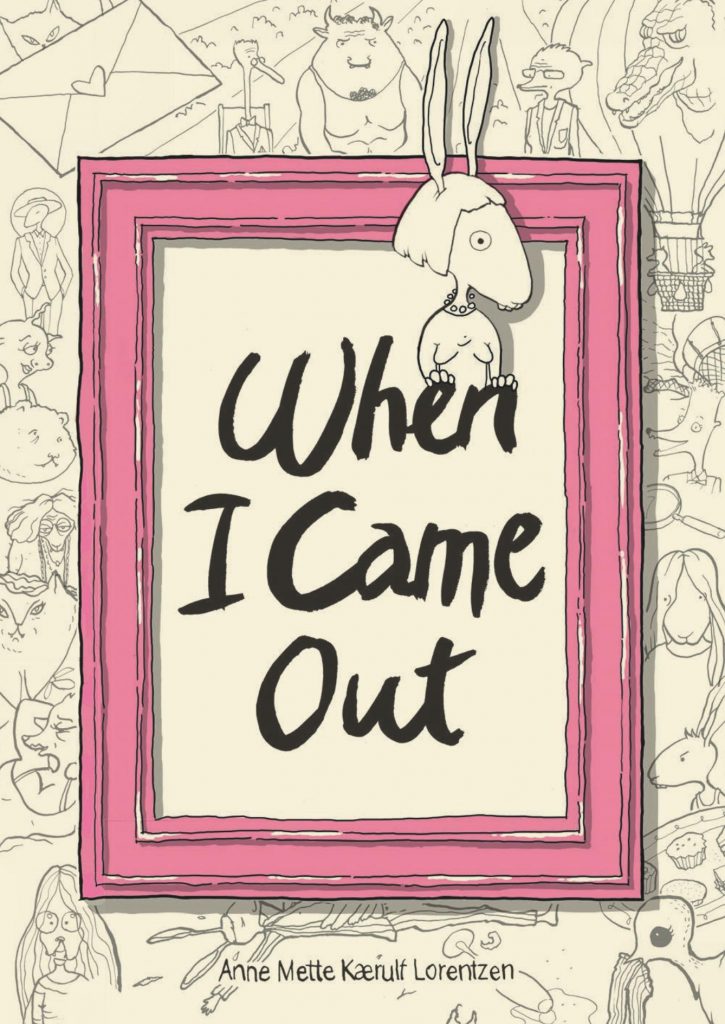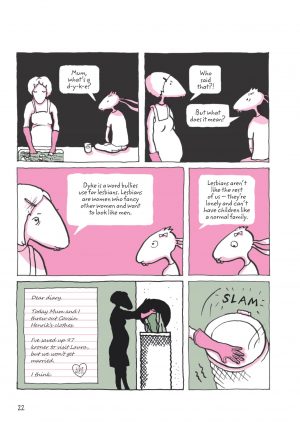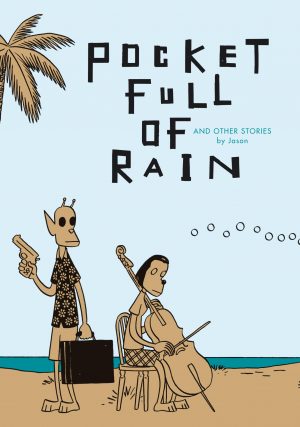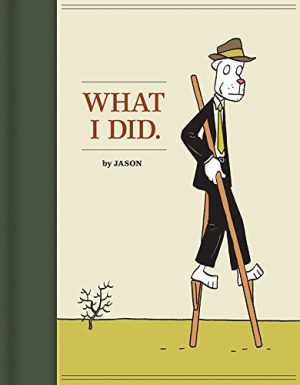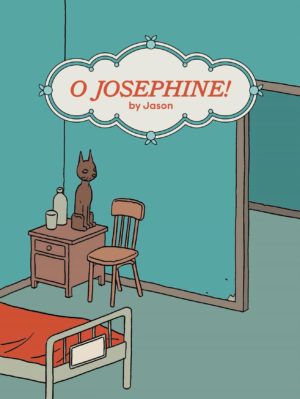Review by Karl Verhoven
Louise has struggled since childhood with the box her mother has her compartmentalised in. She won’t wear the dresses her mother selects for her, preferring to borrow clothes from her cousin Henrik, and is aware of her true inclinations from school days, but instead suppresses these to conform to the narrow minded conventionality of her family. By her thirties she’s been married for a decade, and has children, yet makes excuses for no longer having sex with her husband and isn’t honest with their marriage therapist. Anne Mette Kǣrulf Lorentzen conveys all this with a matter of fact style, presenting the cast as human animals, drawn very simply, and largely without expression, leaving the dialogue and Louise’s diary entries to provide the emotional pull. Restricting the colours used may or may not be intended as metaphorical comment on an incomplete life, but the bright pink and dull greenish grey certainly reflect Louise.
So used to hiding her essential nature, Louise gives very little of herself, even when unburdening to her diary, which reveals her feelings without ever admitting to them. The turning point is when Laura, a brief school infatuation, returns from abroad. “She makes me realise how stale my life is” is a small crack in Louise’s long unbroken veneer. Laura’s arrival coincides with Louise’s mother being admitted to hospital for observation of her increasing dementia, adding stress to the gradual realisation that she’s not what she pretends to be.
The use of in-story aliases too similar to Lorentzen’s own name indicates When I Came Out is autobiographical, yet a distance is still maintained. Very much in the manner of Jason’s work (see recommendations), she supplies emotional turmoil in an extremely detached manner. Beyond her diary it’s rare that Louise admits to any kind of feeling, yet to any outside observer frustration stemming from repression is the order of the day. Even when Louise allows herself to recognise she’s attracted to women the distance remains, but now it’s heartbreaking. It seems that a lifetime of hiding the truth from herself renders Louise incapable of recognising how she’s hurting others via a lack of honesty. Yet there is no correct path to coming out, just advice that leads to a personal one, and under the circumstances any expectation of anything other than turmoil and pain is unrealistic. Lorentzen brings that home near the end in a painfully awkward scene featuring a mutual support group for people who’ve come out at a later age. Despite the good intentions, and varied experiences, is it what everyone needs?
Some of When I Came Out is open to interpretation. Presuming it to be autobiographical, Jane has been Louise’s closest friend since childhood, and is When I Came Out’s most sympathetic character, underlined by her being drawn as a teddy bear. Yet Louise doesn’t appear to confide in her any more than anyone else. Is this depiction a recognition of the truth or as distanced as much of the remainder?
Personal and moving, the difficulty Louise has in admitting who she is should resonate with anyone who’s gone through similar doubt and repression.
